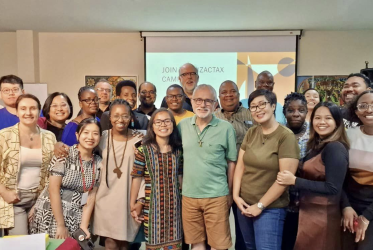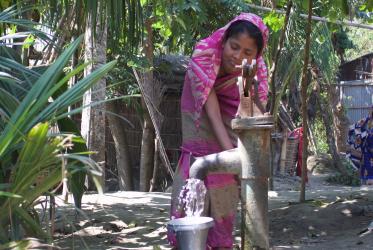Displaying 1 - 20 of 47
GEM School explores how to make new economic world order a reality
08 September 2023
Unity is key when health crisis poses new challenges in Asia
28 February 2022
New WCC “Eco Ambassadors” pledge to protect our ecology
06 January 2020
Eco-School promotes blue communities, green churches
19 November 2019
WCC Eco-School begins in Thailand
07 November 2019
WCC represented at G20 Interfaith forum in Tokyo
13 June 2019
WCC condemns massacre of farmers in Philippines
12 April 2019
Le COE condamne le massacre de fermiers aux Philippines
12 April 2019










